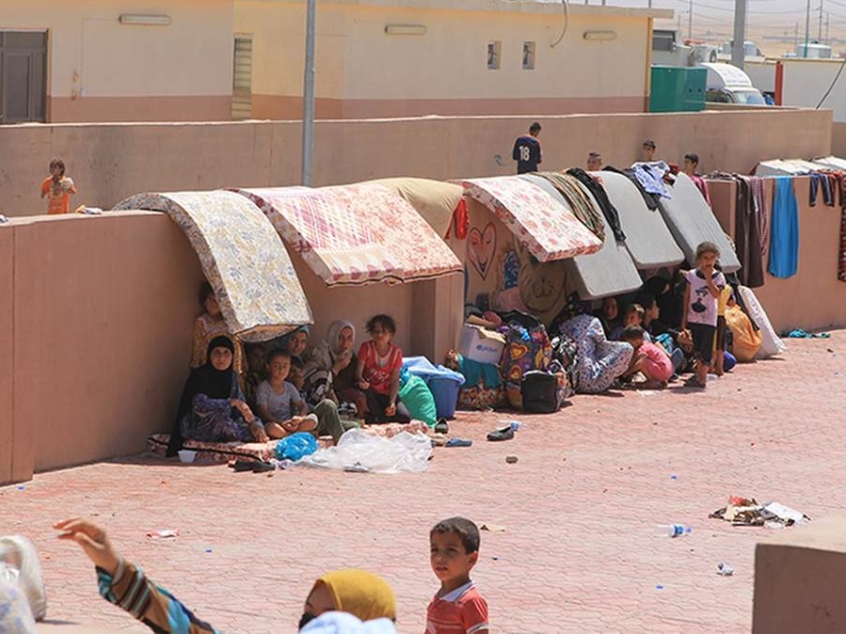
Thousands of Iraqi families are being used as human shields by the Islamic State (ISIS), according to a Christian charity organisation.
"We've been told ISIS is literally lining up men, women, and children—whole families—in a 'human shield wall' as a defensive preparation for the oncoming siege for Mosul," said Vernon Brewer, president of World Help, which has been delivering food and other supplies to Iraqis fleeing ISIS-captured areas.
Brewer said Iraqis risk their lives by trekking a 40-mile journey through desert terrain under 120-degree temperatures without food or water.
"Many—especially children and the elderly—have died in the desert; their bodies litter the escape routes these desperate families are taking to reach safety," he said, according to CBN News.
World Help said U.S.-backed Iraqi forces are setting their sights to retake Mosul, the last ISIS-held stronghold in Iraq.
It said many have already escaped to a refugee camp in Dibaga village, which can only hold 3,500 but now has 20,000 refugees.
"The road [to Dibaga] is a three-day walk, full of bodies of either people who have been killed by ISIS or children dying because of thirst. Thousands of families are coming to a camp of a few hundred tents. They are in desperate need for most essential things like water and shade," a partner of World Help said.
Reports reaching the U.N. High Commissioner for Refugees said ISIS fighters have captured up to 3,000 fleeing Iraqi refugees.
"UNHCR has received reports that ISIS captured on 4 August up to 3,000 IDPs (internally displaced people) from villages in Hawija District in Kirkuk Governorate trying to flee to Kirkuk city. Reportedly, 12 of the IDPs have been killed in captivity," said the report, according to NBC News.
World Help said it will continue bringing supplies to refugees despite the threats.
"The world has largely moved past the conversation on the crisis in Iraq, but we must not forget there are still tens of thousands of Iraqi families with real, urgent needs. That's why we haven't abandoned our work here," said Brewer.













